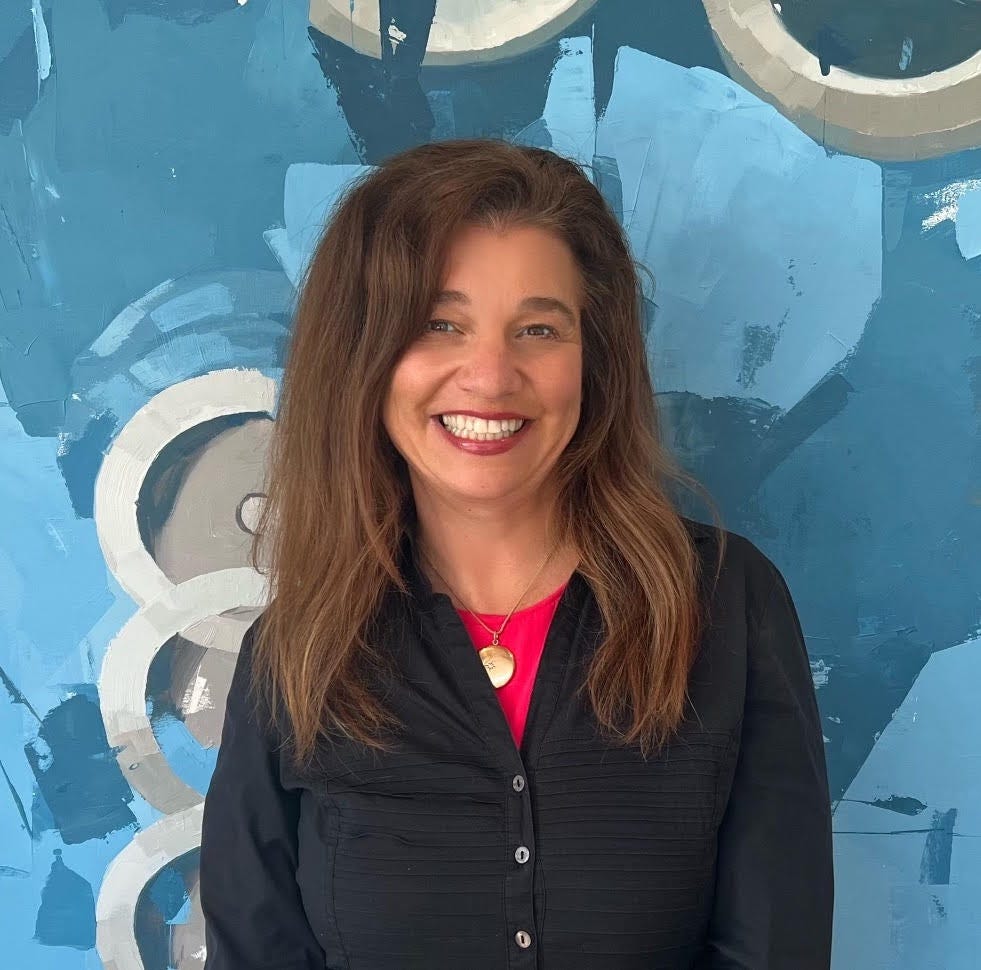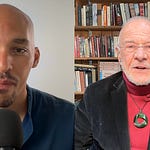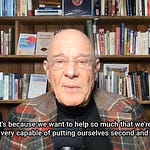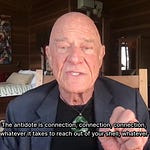Dear Listener,
I'm excited to share my recent interview with Rachel Lehmann-Haupt, author, editor, and digital content strategist. Rachel is the founder of StoryMade Studio, a boutique storytelling studio that focuses on creating compelling consumer-oriented digital content for health and wellness companies. Her expertise lies in helping writers, artists, video producers, and animators tell their stories and amplify their messages through digital marketing.
In our conversation, Rachel discusses the importance of collaborative reproduction and the various methods available, such as sperm donation, surrogacy, and gestational carriers. She shares her insights on the financial aspects and challenges of single motherhood by choice, and the need for new rules and contracts to address the complexities of these reproductive options.
Rachel also talks about the advancements in reproductive science and technology, particularly in egg freezing and fertility preservation. She shares her personal experience with egg freezing and the impact of technology on women's reproductive choices.
Join us as we explore the intersection of reproductive science, technology, and personal choice.
Golden light,
Dr. Richard Louis Miller
Learn More:
You can learn more about Rachel Lehmann-Haupt and her work on her website: www.rachellehmann-haupt.com and www.storymadestudio.com.
Make sure to follow Rachel on Instagram: @rlehmannhaupt.
Books by Rachel
In Her Own Sweet Time: Egg Freezing and the Future of Family (Basic Books, 2010)
Reconceptions: Love, Science and the Unfolding Future of Family (BenBella Books, forthcoming 1/23)
Key Takeaways
What are the financial considerations and challenges faced by single mothers by choice?
What are the ethical implications of new reproductive technologies discussed by Rachel?
How does technology influence women's reproductive choices and fertility preservation?
What are the legal and contractual aspects of collaborative reproduction?
How can we empower women to make informed decisions about their reproductive futures?
What role does storytelling play in humanizing science and technology in health and bioscience writing?
Seeking Psychedelic Testimonials: The Good, the Bad, and the Ugly.
We are currently looking for first-hand accounts of adverse effects of psychedelics—from ‘bad trips,’ to unwanted physiological complications, to abusive practices by guides, therapists, and shamans.
The interviews from this series will go into a forthcoming book on the topic—perhaps the first book its kind.
Please contact me if you would like to be interviewed. You can also leave us a voice message to share your story. We will keep your information anonymous unless you tell us otherwise.
My Books
Freeing Sexuality: Psychologists, Consent Teachers, Polyamory Experts, and Sex Workers Speak Out
Psychedelic Wisdom: The Astonishing Rewards of Mind-Altering Substances
Psychedelic Medicine: The Healing Powers of LSD, MDMA, Psilocybin, and Ayahuasca
Integral Psychedelic Therapy (co-edited with Jason A. Butler & Genesee Herzberg)
NOTE: The podcast is always freely available thanks to our paid subscribers. Please share this post to show your support for transparency. The following transcript distills the key points from this show into a condensed form. It is meant as a reference - listen to the full episode for an accurate rendition of the conversation.
Transcript
Transcript
Introduction - 00:00
Dr. Richard Miller: Welcome to Mind Body Health and Politics. I'm your host, Dr. Richard Louis Miller. The mission of Mind Body Health and Politics is to enhance your physical and emotional well-being, and encourage community. I say "encourage community" because I believe that human beings are tribal animals, and we thrive when we're together in community. When we are in community, knowing the people around us by name, or at least by face, our fear levels are the lowest, and our immune systems function optimally. We are healthiest and most effective in community. We are very collaborative animals as a species. We like to do things together – all kinds of things. We enjoy sewing circles, bike riding, watching football games, playing poker – you name it. We love to eat together, sitting around in circles and enjoying meals.
So you might ask, "If we're so wonderful and collaborative, then why is the history of the world written in murders, wars, and mass killings?" Good question. And the answer is, because a small percentage of us, a very small percentage, are predators. They do not share our way of being in the world. They have a very different philosophy. They believe in what I call "social Darwinism." The fittest run the show in a Darwinian way. So, if they make a lot of money, it's because they were destined to make a lot of money – they were the fittest to do so. And the people who don't make a lot of money weren't supposed to, because they are the ones allowed to die by the wayside in a Darwinian way. And if it means killing off millions, that's okay too, because the strongest rule. What they like ruling is subjects, not citizens.
So the rest of us, we can't go to sleep on this issue. We must stay awake. Even in hard times, such as the times we're experiencing now, when 60% of us are one step away from maybe losing our apartments, or not having food on the table – such huge numbers. When 70% of us, 72% to be exact, are obese or overweight. 30 to 40% of us are suffering from anxiety and depression. And within all of that, we still must stay awake as American citizens in order not to let the predators take control. We have to figure a way out of this, and we will, but we must stay vigilant and we must vote.
I leave you with the words of Thomas Jefferson, one of my heroes: "Eternal vigilance is the price of liberty." Today, I have the privilege of having with us here on Mind Body Health and Politics, a person whom I refer to, when I'm thinking about her after reading her book and preparing for this interview, as "Captain Courageous." Rachel Lehmann-Haupt is here today to talk about her book, "Reconceptions," and she's going to talk about a lot more than that. Welcome to Mind Body Health and Politics, Rachel.
Rachel Lehmann-Haupt's Background - 03:39
Rachel Lehmann-Haupt: Thank you. That was a great introduction. I don't think anyone has ever called me "Captain Courageous," but I think I'll take it as a badge.
Dr. Richard Miller:
Please do. I could have said "generally courageous," and promoted you a bit. So, as I was leaving the house and heading to the studio, my wife asked, "Who are you interviewing today?" I replied, "Captain Courageous." She asked, "What do you mean?" I explained that you are a woman who chose to be a single mother, had your own eggs, which were on ice, so to speak, fertilized by choice, knowing you would be a single mother. My wife gave a thumbs up. Then she remarked, "She must have had enough money to do so." And I thought, that's correct. It's yet another way that those of us with the privilege of having some money can be courageous, whereas women without such financial resources face a very different kind of difficulty. How do they take care of a child and go to work? It's a significant issue.
Rachel Lehmann-Haupt:
It is very true. You immediately went to the heart of the matter. And, yes, following the money is important. I am not rich, not a trust fund baby, or anything like that. But when I had my baby at 42, I had invested about 10 years or more in my career. I was in a position with strong financial earning power. As a writer, editor, and brand content consultant, that doesn't equal being rich, but it does mean having earning power. The difference between single moms who are often portrayed as the downfall of American society and single moms by choice is significant. Many single moms are not educated and haven't thought through how they're going to manage. Often, they become single moms because the father abandons them. However, there is a new era of women, from various races and economic backgrounds, who are more empowered about their reproductive choices. They're making decisions to have babies, either on their own or with friends as co-parents.
The basis of this change is women's increased economic empowerment. For instance, a character in my book, who heads a major feminist organization in Washington D.C. and focuses on pay equity, is African American with a PhD from NYU. She was born to a single mom with no education, who had her at 16 and worked multiple jobs without the father's involvement. She describes the stark difference between her upbringing and her decision to become a single mom. She worked her way out of Compton in L.A., got into college, and eventually earned a PhD at NYU, finding her way into feminist circles in New York. Many women in her circle regretted not having a child, which influenced her decision to become a single mother. She realized she had the earning power to support a child. So, the story we're talking about isn't one of elitism.
Single Motherhood by Choice - 09:15
Dr. Richard Miller: Well, let me interrupt and ask you a question. Are you comfortable differentiating between single moms by choice and single moms by abandonment or divorce? Yes? Well, in that case, then, the media is often discussing one of those groups but not all. What I want to focus on today, although my great concern about capitalism and poverty led us into that topic, is single motherhood by choice – the fact that you were able to do it because you had education, money, and earning power. And importantly, you could work at home part of the time, a major factor we can discuss if time allows. You chose what perhaps millions, if not hundreds of millions of women are not choosing: they are being abandoned, or they're getting divorced, and they are bringing up children alone, not by choice. Let's talk about the 'by choice' group. To start, tell us about collaborative reproduction.
Rachel Lehmann-Haupt: Right. So, collaborative reproduction is about more than just single moms; it's about choice. Science created new ways to produce children, separating procreation from romantic entanglement or even physical intercourse. Technologies like intrauterine sperm insemination, which lesbians in the 70s called the turkey baster, made it possible for women to get impregnated by a doctor, midwife, or their partner. This technology separated sex from procreation. Then, this industry realized that women suffering from infertility, or those who are gay or single, needed sperm, and men were donating. They realized it was a business; you could go to a sperm bank and buy sperm for you and your partner or to aid a partner who was infertile.
Dr. Richard Miller: Is it true that you can buy specific kinds of sperm, like Nobel Prize sperm or baseball player sperm?
Rachel Lehmann-Haupt: That's getting a bit into the eugenics realm. I mean, there is a sperm bank in LA that sells celebrity lookalikes.
Dr. Richard Miller: Oh, thank you for being honest. I want you to be as honest as possible.
Rachel Lehmann-Haupt: Yes, and you can buy sperm from elite donors. Harvard grads, for example, sell their eggs for large sums to egg banks. So, you can choose from profiles of egg and sperm donors, which is part of collaborative reproduction. It's a term coined by lawyer and bioethicist John Robertson, describing bringing together different biological parts to satisfy new family-building lifestyles.
Collaborative Reproduction - 14:17
Dr. Richard Miller: We're on the topic of the all-important eggs right now. So, where do you stand on getting sperm: professionals, friends, or both? What's okay?
Rachel Lehmann-Haupt: That's a big topic in the book. Yes, I am very much against co-parenting, like getting pregnant accidentally on purpose or getting pregnant with a friend as a co-parent, unless there's an incredibly well-developed relationship and a firm contract. But then, what does that look like? It's kind of like a marriage, I guess. If it's a situation where, for instance, you're gay and he's straight, or he's gay and you're straight, and he wants to be a dad, I've heard these stories of gay men wanting to become dads and single women wanting to become moms.
Therefore, they work out a relationship. I think it really depends on the individual. From a legal perspective, at least in terms of my personal decision, it was better to go with a sperm bank, as there were no gray areas around paternity. It left me with the option to find a partner who could play a parental role in my son's life and with a lot less legal ambiguity. However, the collaborative aspect of two people co-parenting can also be financially more reasonable if both are contributing.
Dr. Richard Miller: Exactly. So, in a way, what we're saying here, Rachel, is that we need new rules. We have rules and agreements that financially cover people when they're married. But we're talking about people getting together, not necessarily wanting to marry, but wanting to co-parent because they each want a child. Since they live separately, it's almost like a better version of a divorced couple sharing custody.
Rachel Lehmann-Haupt: Yes, there's no acrimony in that situation.
Dr. Richard Miller: But as you're pointing out, and rightfully so, if there isn't some kind of contract, perhaps a legal one, then it becomes a bit uncertain for the kids.
Rachel Lehmann-Haupt: It's true. Paternity becomes uncertain too. For instance, if I had a baby with a gay man, and that's the dad, and the child goes back and forth, and then maybe I'm with someone new. Who is that person to my child? Is he the dad, or the stepdad? In a way, we need new language to redefine these roles and new contracts to redefine them outside of traditional marriage and the traditional nuclear family.
Surrogacy and Gestational Carriers - 17:31
Dr. Richard Miller (17:14): So, once we have the eggs and the sperm, we need housing. So, talk to us about surrogates and gestational carriers.
Rachel Lehmann-Haupt (17:31): Right. There's a chapter in the book about a surrogate. It's a tough job. I met a woman and spent a lot of time with her. She's a millennial with no interest in having children of her own, but she chose this as her vocation. The chapter is called "Portrait of a Professional Babymaker." She wanted to have children for other people and get paid for it.
Dr. Richard Miller (18:06): Are we talking about Tyra?
Rachel Lehmann-Haupt (18:09): Yes, we're talking about Tyra. Tyra wanted to get paid so she could be free to travel around the world with her, at the time, boyfriend, now husband. It was a good gig for her. She was pregnant and grew a baby for a family, generally wealthy. Tyra isn't poor, but she's not as wealthy as some of the people she carries babies for. The money allowed her to do what she wants, which is to travel the world.
Dr. Richard Miller (18:53): Rachel, one second about Tyra. As I recall, didn't she eventually retire from surrogacy after having three? And then, is she selling life insurance? Correct me if I'm wrong. I had some trouble with Tyra, and I'll tell you what my trouble with her is.
Rachel Lehmann-Haupt (19:12): Tell me.
Dr. Richard Miller (19:15): First of all, the predators I talked about in my intro. When they hear and know that a woman can have three babies in five years, some of them are going to force women to have babies so they can sell them as a business. That scared me a bit, but I can't do anything about it. I know that's going to be going on as well. Excuse me.
Rachel Lehmann-Haupt (19:41): That's exactly my point. There is systemic sexism in this industry, especially on the female side, but also slightly on the male side. It's a very important theme of the book that I haven't really talked about much. On the sperm side, the guys can masturbate into a cup, walk away, and not have any responsibility. This industry churns out sperm with anonymity. A very important note, there's an article that was just published in the New York Times Magazine. Most sperm banks are realizing the systemic sexism of that policy and of the anonymous sperm donor policy. They are changing their policy. More and more women can meet the donor, more and more women can do something called an open identity donor, which is what I did with my son. He will have the opportunity to meet him when he turns 18 if he so chooses. The guy has no legal or financial obligations to me, but for purposes of identity and self-understanding, my son will be able to meet him. I think that's a very important change. They're realizing that secrecy is not good.
Dr. Richard Miller (21:21): Here, here. That's not a good policy for us human beings.
Rachel Lehmann-Haupt (21:28): Exactly. So, on the other side of the coin, where the systemic sexism really is, is with the egg donors and with the gestational carriers.
Dr. Richard Miller (21:44): I want you to quickly define surrogate and gestational carriers for our listeners so they know what you're referring to.
New Rules and Contracts - 21:50
Rachel Lehmann-Haupt (21:54): Surrogates are not as common anymore. The traditional idea of a surrogate was a woman who got pregnant with her own eggs and carried a baby for someone else, essentially giving up their biological child for adoption. A gestational carrier, which is more common now, is basically a woman who offers her uterus to hold embryos created with either donor eggs or the mother's eggs, and the father's sperm. It's often referred to as 'rent-a-womb.' In both cases, the women who donate their eggs and the women who act as gestational carriers, or 'rent-a-wombs', their bodies are pushed very hard. For example, Tyra had three pregnancies in five years, and there are stories of five pregnancies in five years. The industry is quite intense.
Dr. Richard Miller (22:58): You dropped a very telling quote in your book from Tyra, where she talked about getting $50,000 per child plus perks like clothing and food. You also quoted her as saying it was easier than going to work.
Rachel Lehmann-Haupt (23:25): Right. It's interesting because I find it beautifully poetic. If you look back at our tribal roots, the work of pregnancy is truly a job, often marginalized in our culture. Women are expected to be pregnant, go to work, take a short maternity leave, not allowing their body to heal, and then are looked down upon if they take time off of work. I took a month off when my son was born and was really worried about the impact on my career.
Dr. Richard Miller (24:26): I've heard in the last two weeks that there are countries in Europe where women get a year or two off.
Rachel Lehmann-Haupt (24:36): Yes, in many countries. I'm working with a doctor on a book right now, and in Mexico and India, it's part of the culture for women to take 40 days off. The stress it creates on women in our culture is unheard of. I think it's great that Tyra thought of her job as a professional baby maker. But the industry she was working in is like an assembly line. It's like Lucy with the chocolates; these women can't keep up. Their bodies are pushed to donate more eggs and to have more children. They push themselves so they can make enough money. There's systemic sexism in that.
Egg Freezing and Fertility Preservation - 25:11
Dr. Richard Miller (25:34): Thank you. I think it's fair to say there's systemic sexism in everything. We might be wrong once in 500,000 times, but we're right all the rest of the time. From my research and life of study, it appears that the male gender has been subjugating the female gender throughout all of recorded history, with a few exceptions. Women have focused on the financial aspect and the glass ceiling, but I had a guest point out that there's a direct correlation between the percentage of orgasms that women have in the United States compared to men and the amount of money they make compared to men.
Rachel Lehmann-Haupt (26:31): I've never heard that before, but it might be right.
Dr. Richard Miller (26:36): It's in my book, "Freeing Sexuality," which came out yesterday. You can look it up. The research wasn't just made up. So, systemic sexism? Absolutely. We need a renewed Women's Liberation Movement. Sometimes in history, you can't just have a movement and then rest on your laurels. You have to renew it continually. That's why Thomas Jefferson said you have to rewrite the constitution every 20 years for the new generation. We're hanging onto the same one for over 200 years, which was wonderful at the time, but it had major flaws, like the exclusion of women and people of color.
Rachel Lehmann-Haupt (27:36): It's true that there are more layers of the onion of systemic sexism that need to be peeled off and thrown out. The new women's movement is still very focused on reproductive choice, particularly abortion. But I think it needs to expand into choices like mine, LGBTQ+ choices around family building. That's so much of the new movement.
Dr. Richard Miller (28:32): Talk to us more about family building in that regard, please.
The Influence of Technology - 29:06
Rachel Lehmann-Haupt (28:37): Family building is a very important part of life. If you are a gay family, you should have the right to have a family. The American Society for Reproductive Medicine recently came out with a more inclusive definition of infertility, which I personally don't think should be called infertility. It includes people who are single, in same-sex relationships, and transgender. This change means that insurance companies that used to cover fertility services only for heterosexual couples can now cover a broader array of families. This is part of the women's movement, which I see now as including transgender issues. It's a people's equality movement.
Dr. Richard Miller (29:43): I agree with you. It's a people's equality movement, pure and simple. Each person should be able to express themselves as they want, so long as they're not hurting another person. What I've learned from the study of history is that when a country is at war and one side wins, it only means the other side lost militarily. It doesn't mean that their belief system changes. For example, the North won the Civil War militarily, but the South didn't give up their belief system. 150 years later, a very high percentage of them still believe the same thing. Sometimes, countries go to war again over something that happened a long time ago, like in Croatia, where the conflict continues because the descendants maintain their beliefs.
Rachel Lehmann-Haupt (31:38): It's true. It's a very divisive and extreme time. I'm not sure what to say about it.
Dr. Richard Miller (31:52): Let me take you somewhere else. Talk to us about cooperative breeding and alloparenting. What do those terms mean?
Ethical Considerations - 32:13
Rachel Lehmann-Haupt (32:00): Cooperative breeding and alloparenting are anthropological phrases that apply across species. They go back millennia and are not limited to collaborative reproduction with technology or reproductive science. It's the modern version of alloparenting or cooperative breeding, practices that we as a species, and other species, have done for millennia. I believe the original family was the tribe, and in a tribe, children were raised cooperatively, which is what's known as alloparenting.
Dr. Richard Miller (33:06): There is somewhat of a movement now, in that direction. It's a combination of the communitarian movement of the 60s, appearing at various times in American history, mixed with what's referred to as the polyamory community.
Rachel Lehmann-Haupt (33:32): It's true. There's a growing recognition that there are many different ways to have community, express love, and raise children. With collaborative reproduction or co-parenting, there need to be strong guidelines and rules, as I've seen cases of polyamory or open marriages that end up causing a lot of pain.
Dr. Richard Miller (34:24): I had a friend who tried it for a while and referred to it as 'poly-agony.'
Rachel Lehmann-Haupt (34:33): That's a good term. In the quest to be open, sometimes that openness can be a blockade to intimacy. However, some in the polyamorous community might disagree, arguing it leads to more intimacy and openness.
Dr. Richard Miller (34:57): Some research indicates that children do particularly well in polyamorous relationships that stick together. They learn which parent to go to for what they need to learn, effectively having more parents. It's an interesting concept.
Empowering Women and Choice - 35:00
Rachel Lehmann-Haupt (32:00): Cooperative breeding and alloparenting are anthropological terms that span across species. These practices date back millennia and aren't just limited to modern collaborative reproduction with reproductive technology. I believe that originally, the family unit was the tribe, where children were raised cooperatively, known as alloparenting.
Dr. Richard Miller (33:06): There's somewhat of a movement now in that direction, combining the communitarian movement of the 60s, which has surfaced various times in American history, with what is referred to as the polyamory community.
Rachel Lehmann-Haupt (33:32): It's true. There's a growing recognition of diverse ways to form a community, express love, and raise children. Collaborative reproduction or co-parenting requires strong guidelines and rules. I've seen cases of polyamory or open marriages that have resulted in a lot of pain.
Dr. Richard Miller (34:24): I knew someone who tried it and referred to it as 'poly-agony.'
Rachel Lehmann-Haupt (34:33): That's an apt term. Sometimes, in the quest to be open, that openness can hinder intimacy. However, some in the polyamorous community might argue that it leads to more intimacy and openness.
Conclusion - 40:18
Dr. Richard Miller (34:57): Some research suggests that children do particularly well in polyamorous relationships that remain stable. They learn to approach the parent best suited for their particular needs, effectively having more parental figures. It's an intriguing idea.
Rachel Lehmann-Haupt (40:35): I mean, I'm...
Dr. Richard Miller (40:36): I don't know what the first one of the... As I'm listening to you and thinking about that, one of the things that stands out for me was, during my three months, I never dated. I didn't know how to date with a child. I was responsible for the child. How do I date? Was I going to hire a babysitter to stay with my child so I could go out on a date and leave my daughter at home with a babysitter? It didn't feel comfortable for me. So I remember that. My three months of dating was out.
Rachel Lehmann-Haupt (41:13): Yeah, I mean, it's hard to date. I think when they get older, it becomes easier when they can stay home alone. But there's a lot of investment in babysitters if you want to date.
Dr. Richard Miller (41:31): I was talking about a four-year-old in Junior Olympic ski school.
Rachel Lehmann-Haupt (41:38): I hear you. I think there's something grounding about being in one home. I see kids who go back and forth between two homes, and while those divorced mothers and fathers might have more money, and the kids have two houses, it seems a bit schizophrenic for the kids to move every three days. I think as a single parent, having the kids stay in one home is grounding.
Dr. Richard Miller (42:32): Rachel, let's say a magic wand comes to your hand, and you get to wave it and make cultural changes with regard to being a single mom by choice. What cultural changes would you like to see?
Rachel Lehmann-Haupt (42:54): I'd like to see total acceptance of it as a choice and no discrimination against single moms in their careers. I'm more ambitious and work harder now that I have a dependent. There needs to be more flexibility for all working parents. One of the great things from the pandemic is the distributed workplace, which allows more flexibility. I hope all single moms find love. Love is important. We need to accept all different kinds of lifestyles, whether you're gay, single, or in a nuclear family. There's still an attitude that nuclear families are better and that single women are desperate for a partner. We all need love, but that message of desperation for women isn't doing us any service.
Dr. Richard Miller (44:48): You rightfully jumped to housing and insurance, which are very important for someone considering being a single mom by choice. How important is it to tell friends and family in advance to gauge the support they'll get or if they'll be put down?
Rachel Lehmann-Haupt (45:26): I think one would sense who would support them and who wouldn't. There will be discrimination in any community. Creating your committee or tribe is important. You want to know you have support and live in a community that accepts you. I live in Marin County, which is liberal but also dominated by nuclear families. I've received judgy comments from married mothers.
Dr. Richard Miller (46:11): Mm-hm. It's a mixed bag.
Rachel Lehmann-Haupt (46:15): It is. I have to jump for an interview in two minutes. This has been a wonderful conversation.
Dr. Richard Miller (46:26): Is there anything else you wanted to add?
Rachel Lehmann-Haupt (46:43): No, this has been great. Follow me on Instagram or for book editing or content strategy. Reach me at Story Maids Studios.
Dr. Richard Miller (47:07): How do they reach you, Rachel?
Rachel Lehmann-Haupt (47:10): Rachel at Story Maids Studios.
Dr. Richard Miller (47:16): Thank you for the interview. It's been a pleasure.
Rachel Lehmann-Haupt (47:25): Wonderful to meet you. Thank you.
Dr. Richard Miller (47:27): Thank you, listeners. Our programs are archived and open source. We broadcast a new program every Tuesday morning. My latest book, "Freeing Sexuality," came out yesterday.
Rachel Lehmann-Haupt (48:20): Congratulations on your new book.
Dr. Richard Miller (48:25): Thank you, Rachel. Until next time, this is Dr. Richard Louis Miller reminding you that good health is worth fighting for and is essential for life, liberty, and the pursuit of happiness.










